
As Islamic State is on its heels in Syria and Iraq, Egyptian security forces continue to pay a dear price to the group, which on Sunday carried out another deadly attack through its branch in North Sinai, commonly known as Wilayat Sinai.
The attack, in which 15 Egyptian conscripts and officers were killed, came as a reminder of the resilience of militants in the area, especially salient as it was carried out almost exactly a year after the onset of a major military campaign, known as Comprehensive Operation Sinai, or Sinai 2018. The campaign had the stated objective of eradicating the last vestiges of terrorism and extremism in the province in a swift, ruthless show of force.
Early on in the campaign, there was cautious hope that Sinai 2018 might avoid the shortcomings of previous efforts and build on the knowledge gained over the course of the years-long war on terror in Egypt.
While few considered the complete eradication of terrorism and extremism as a practical objective in the given span of three months, there was some indication that the military may be ready to tackle the pernicious insurgency that had been festering in North Sinai for years – particularly as the major attacks that Sinai-based militants carried out in the province and in the mainland signaled the state’s failure to deliver security, the promise of which has formed the primary bond between the current Egyptian state and its citizens since President Abdel Fattah el Sisi rose to power.
That the campaign was launched some time after the massacre at the Rawda Mosque, where unknown militants killed over three hundred worshipers in the deadliest attack in the country to date, seemed to indicate a greater degree of planning than the knee-jerk strikes that have come to characterize Egypt’s counter-terror operations. To succeed, the campaign would need to build on enhanced capacity for intelligence-gathering (thanks in part to assistance from Israel and other allies, as well as new drone technology), by improving analysis capability and employing these in targeted strikes.
The scale of the campaign showed promise: for the first time, the coordination of police, intelligence, and military efforts in operations took place across multiple regions, intended to limit militants’ ability to regroup in new locales. This also included, for the first time, the explicit targeting of financing and smuggling networks by operations in the Suez Canal zone and elsewhere.
But, perhaps more importantly than what the campaign needed to do to mitigate violence in the peninsula, is what it needed not to do: the typical heavy-handed approach of the Egyptian military, which at times has amounted to collective punishment and certainly encompassed egregious human rights abuses, has been readily exploited by Islamic State and other militant groups in the province as a motivating factor for recruitment.
Now, a year later, after having issued over 30 statements on its activities (which included announcing the death of 464 individuals and the arrest of 7,491 others), the Egyptian military appears to have rather unceremoniously ended its Sinai 2018 campaign. A statement on military activity issued in January 2019 made no mention of the campaign, despite no formal announcement of its conclusion.
In this context, both the recent Wilayat Sinai attack and the ending of Comprehensive Operation Sinai after a year provide points of reference for assessing the past year’s counter-terrorism approach. Both give indication that, despite the ambitious title of the campaign, Egypt has not been able to effectively pivot to a more comprehensive approach to countering terror.
With regard to intelligence collection and analytic capability, there were some noteworthy changes over the past year: the expansion of programs that draw on tribal knowledge of territory and militant activity were reported in the north east and, for the first time, the center of the province. Several major military strikes hit senior Wilayat Sinai leadership. But, the ability to carry out Sunday’s coordinated, high casualty incident with multiple types of weapons indicates that these strikes have not been successful in limiting Wilayat Sinai’s capacity to plan and execute major attacks.
The wide-ranging geographic scope of Sinai 2018, while promising, ultimately was not sustainable for long enough to be effective. After major media attention to the operations early on in the campaign, by last August it was clear that the military was returning to its more usual presence, and reports began to suggest that Sinai 2018 was winding down. Like clockwork, attacks in the province began to pick up again. After decreasing from 26 attacks reported in February 2018 to only three in May, once the military presence receded, the last six months of 2018 saw over 21 attacks reported per month on average.
There is less information available on the success of efforts to tackle smuggling networks, though reports continue to indicate that tunnels from Sinai to Gaza remain operational. More concerningly, a recent martyrdom notice from Wilayat Sinai revealed the presence of a Dagestani fighter among their ranks – the first announcement of a foreign fighter from the North Caucasus, and the first confirmed foreign fighter from outside of Egypt or Gaza (though other reports have suggested the presence of fighters from Tunisia, Libya, and the Levant as well).
Finally, Sinai 2018 failed to avoid missteps of previous campaigns, but instead exacerbated them. From the onset extreme emergency measures were put in place, preventing mobility into and around the province, and resulting in near humanitarian crisis when food and supplies could not reach portions of the population.
Mass displacements continued as the military attempted to expand buffer zones around the Arish airport and other sensitive locations. Continuous airstrikes resulted in high death tolls, with little transparency about targets or damages suffered on the ground.
Far more concerning than the failure of this campaign to have achieved its lofty aims, the Egyptian security apparatus’ failure to learn from past mistakes bodes poorly for future security.
At the moment, a strategy of containment seems to be the best-case scenario, but a vision of North Sinai in which militants continue to maintain a solid presence, with foreign fighters among their ranks and an aggrieved population under continuous de facto occupation (by militants and military), has wider implications for the security of the country and the region. After all, a small but tenacious group of militants have used the province as a base for deadly attacks against security forces, locals, Christians, and tourists for years.
Unfortunately, the lesson from the repetitive shortcomings of successive military campaigns, particularly from a force as well-equipped as Egypt’s, seems to be that the real security crisis in the country is a crisis of will to examine failures and learn from them—at its core a crisis of leadership.
Allison McManus is the Research Director at the Tahrir Institute for Middle East Policy in Washington, D.C. Her work has been published in the Intercept, Jadaliyya (where she serves as a co-editor of the Maghreb page), the National, Foreign Affairs, and elsewhere. You can follow her on Twitter: @AllisonLMcManus.
All views and opinions expressed in this article are those of the author, and do not necessarily reflect the opinions or positions of The Defense Post.
The Defense Post aims to publish a wide range of high-quality opinion and analysis from a diverse array of people – do you want to send us yours? Click here to submit an Op-Ed.

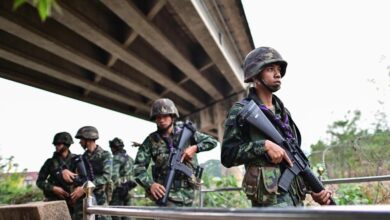

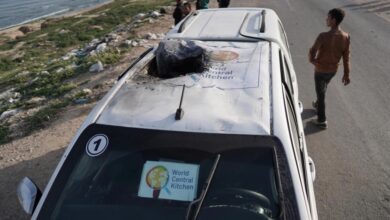
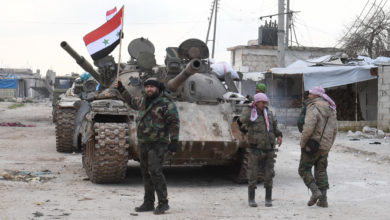


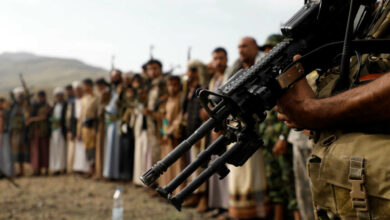

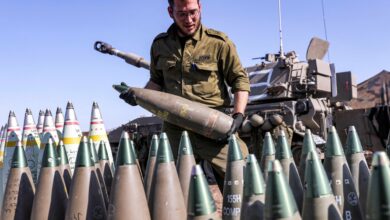
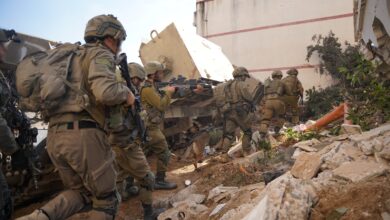
5 Comments